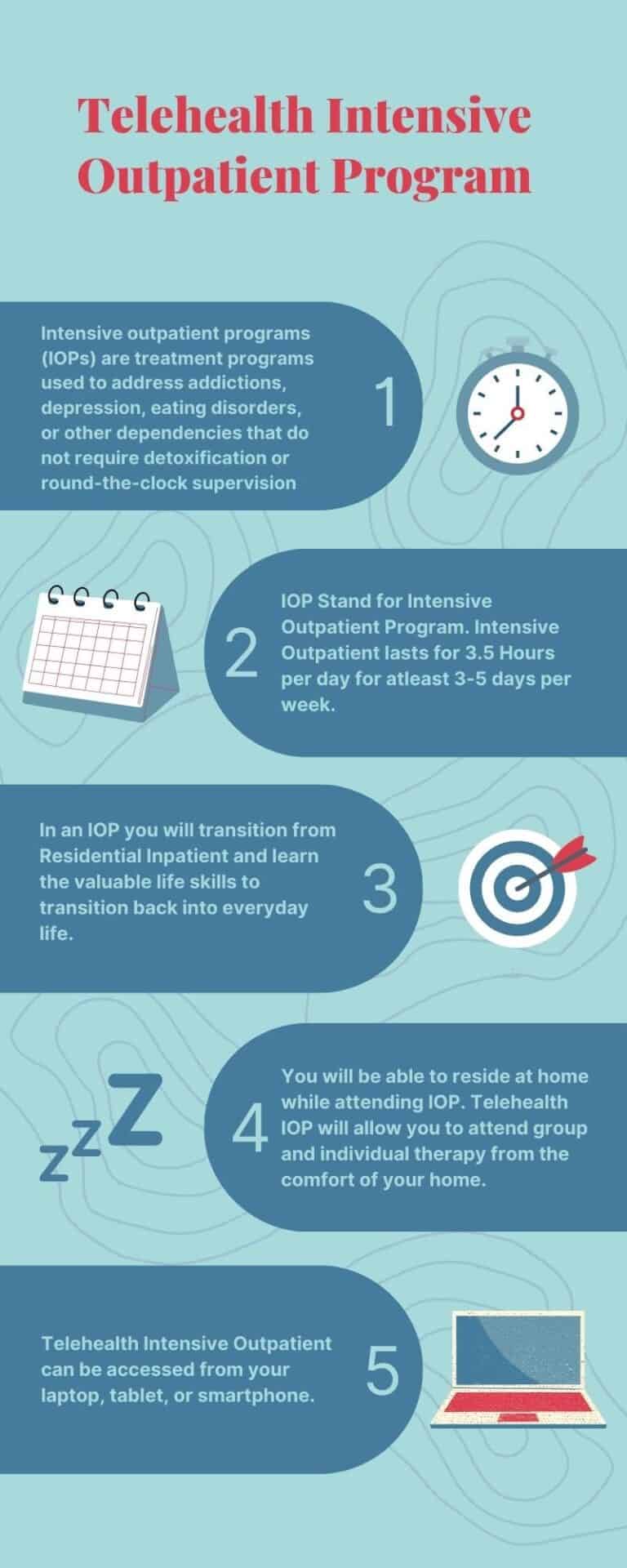How an Intensive Outpatient Program (IOP) Can Support Your Mental Wellness Journey.
How an Intensive Outpatient Program (IOP) Can Support Your Mental Wellness Journey.
Blog Article
Browsing the Intricacies of Dual Diagnosis Therapy Within an Intensive Outpatient Program Setting
In the world of mental health and wellness and dependency treatment, the crossway of twin medical diagnosis provides a nuanced obstacle that requires an extensive and customized strategy. By exploring the ins and outs of twin diagnosis treatment within this extensive outpatient context, a more clear course emerges towards alternative and lasting recuperation for those grappling with these intertwined challenges.
Double Diagnosis Introduction
What is the value of recognizing twin diagnosis in mental health and wellness treatment? It is vital to identify and resolve this comorbidity as it can dramatically influence the efficiency of mental health and wellness treatment.
Comprehending double diagnosis is important as it calls for a detailed and integrated strategy to therapy. By acknowledging the interaction in between compound use and psychological health, doctor can customize interventions to satisfy the unique needs of each person. This alternative strategy not only addresses signs and symptoms however additionally targets underlying variables that add to the double medical diagnosis.
Additionally, untreated double diagnosis can cause a cycle of regression and aggravating mental health signs and symptoms. By recognizing the intricacy of dual medical diagnosis and providing specific treatment, healthcare professionals can sustain individuals in accomplishing lasting recovery and enhanced psychological well-being.
Tailored Therapy Strategies
Recognizing the elaborate interaction in between material use conditions and psychological health problems, the growth of customized treatment plans is vital in resolving the complexities of double diagnosis in mental health treatment. Tailored treatment plans are customized approaches that consider the distinct requirements, challenges, and goals of individuals dealing with double diagnosis. These plans are created collaboratively by a multidisciplinary group of experts, consisting of psychoanalysts, psycho therapists, social employees, and dependency professionals, to make certain thorough and incorporated treatment.
Tailored therapy strategies normally entail a mix of treatments, medicines, and behavioral interventions that target both the substance use disorder and the psychological health and wellness problem all at once. These strategies might include cognitive-behavioral therapy, dialectical behavior modification, medication-assisted therapy, individual therapy, team treatment, and household therapy, among various other evidence-based treatments. By personalizing treatment methods to private situations, tailored strategies can attend to the root causes of twin medical diagnosis, promote long-lasting healing, and improve overall lifestyle for individuals battling with co-occurring problems.
Integrated Treatment Method

Moreover, the social element of incorporated care includes addressing environmental variables that may add to the growth or perpetuation of substance usage and psychological health concerns. This can consist of family dynamics, real estate instability, or absence of social assistance. By incorporating social interventions like family members treatment, employment assistance, and community resources, the treatment ends up being extra holistic and tailored to the person's details needs. In general, an integrated treatment strategy in twin diagnosis treatment within an intensive outpatient program setting intends to supply extensive, reliable, and individualized like individuals dealing with co-occurring disorders.
Difficulties in IOP Setting
In the context of double diagnosis therapy within an intensive outpatient program, navigating the intricacies of co-occurring material usage conditions and psychological wellness problems click this link provides considerable obstacles. Among the main difficulties in the IOP setup is the control of care between mental health and wellness professionals and chemical abuse specialists to make sure a detailed therapy method. This calls for reliable communication, cooperation, and a go to this website deep understanding of how these problems interact and affect each various other.
Furthermore, the fluctuating nature of compound use conditions and psychological health and wellness problems includes one more layer of intricacy - Intensive Outpatient Program (IOP). Customers in an IOP might experience sudden changes in their signs and symptoms or compound food cravings, requiring prompt intervention and modification of therapy strategies. Stabilizing the strength of therapy and support while permitting customers the flexibility to manage their everyday responsibilities can be a fragile stability to keep
Moreover, dealing with stigma and resistance to therapy within the IOP setting can hinder progress. Some people might be reluctant to disclose their double diagnosis or may really feel ashamed, hindering their interaction in the restorative procedure. Getting over these obstacles requires a helpful and non-judgmental setting that cultivates count on and visibility.

Collaborative Specialist Efforts

Collective initiatives likewise include regular interaction and details sharing among group members to make sure a cohesive treatment strategy - Intensive Outpatient Program (IOP). This may entail instance meetings, joint sessions with the client, or shared documentation to track progression and readjust therapy techniques as required. In addition, cooperation may include involving various other health care experts such my explanation as health care physicians or household specialists to give all natural support to the client. Ultimately, an unified front of professionals functioning with each other boosts the effectiveness of dual diagnosis therapy within an extensive outpatient program.
Verdict
To conclude, effective twin medical diagnosis therapy within an extensive outpatient program setting needs customized treatment strategies and an incorporated care approach. Difficulties may arise in this setting, however collaborative efforts among experts can help browse these complexities. By attending to the unique needs of individuals with co-occurring mental health and substance use problems, IOP programs can supply comprehensive and all natural care to support recovery and overall well-being.
Report this page